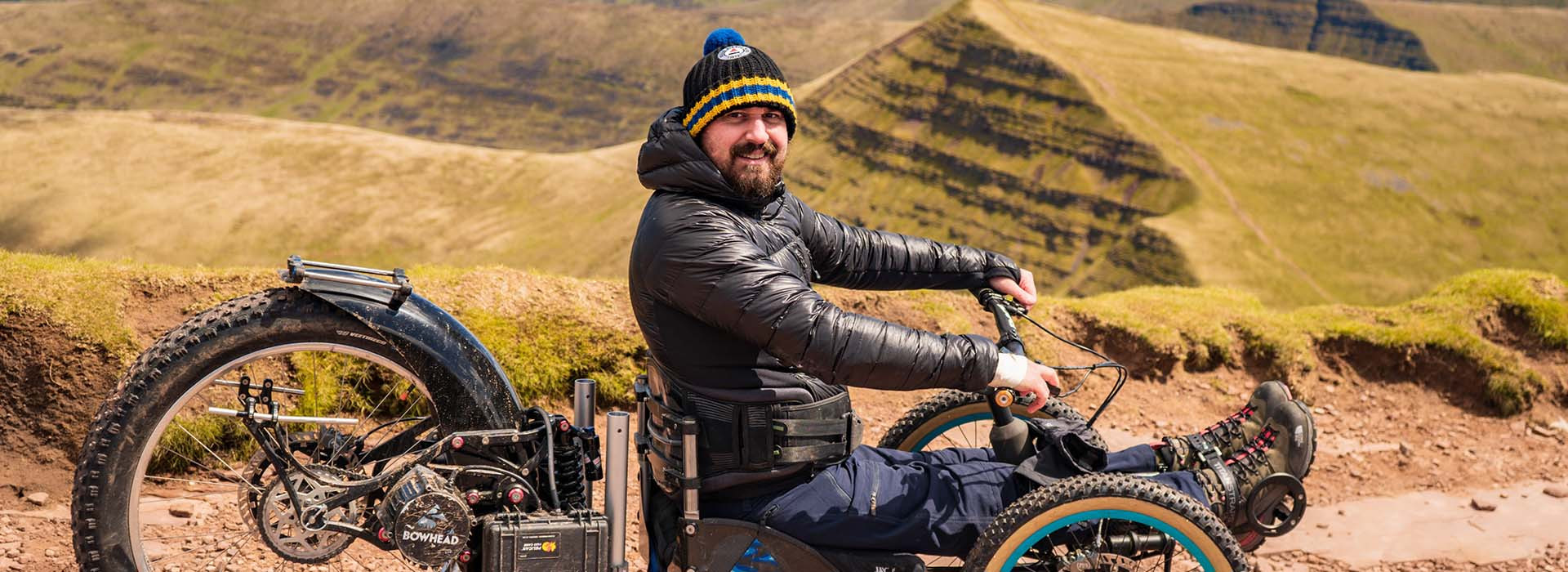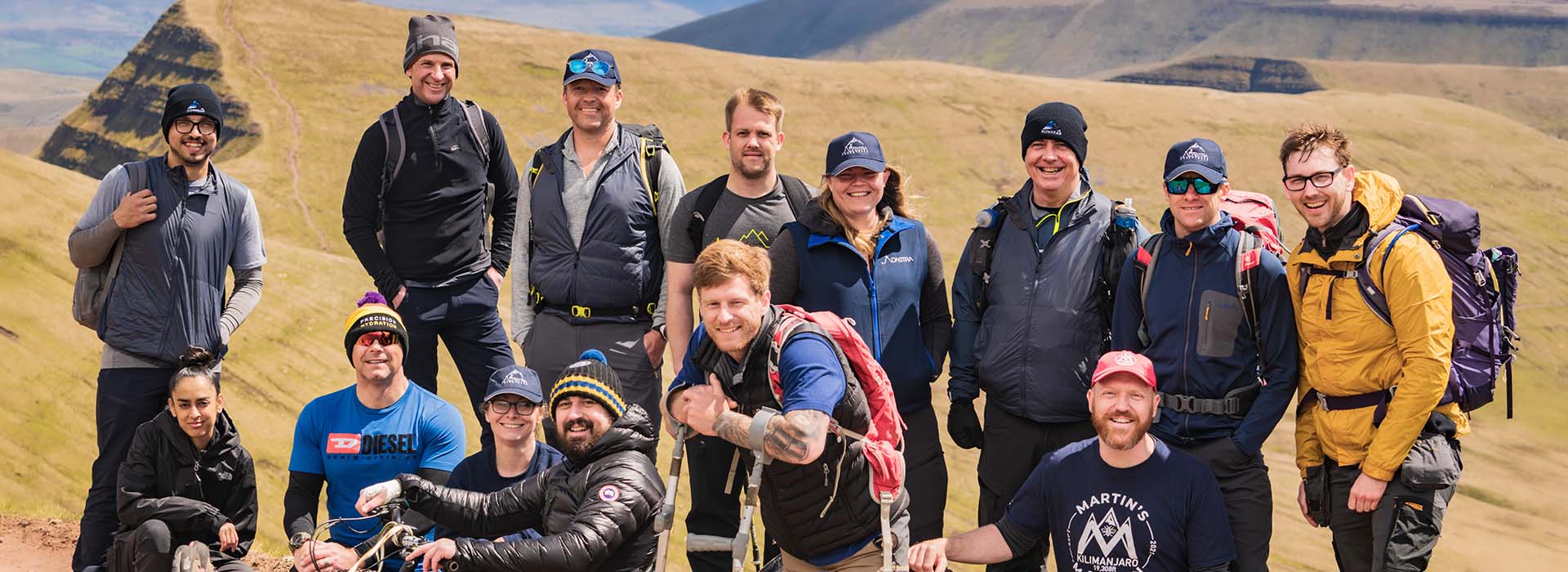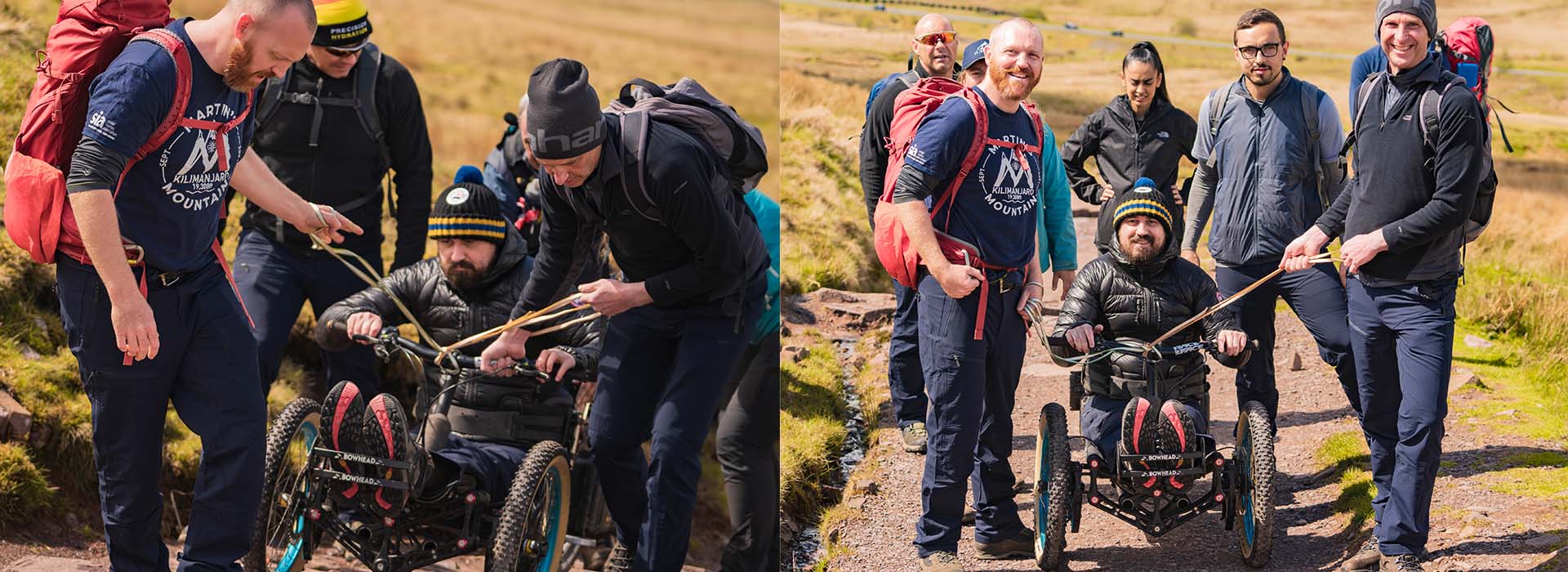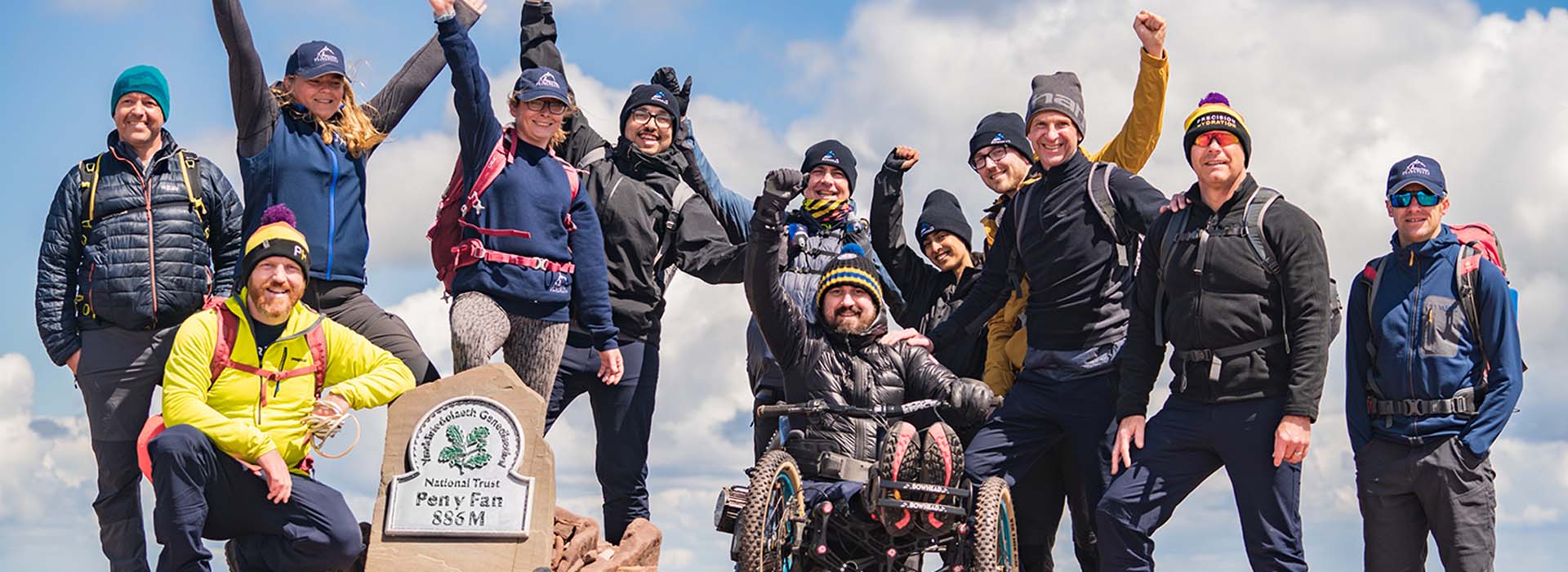The story behind the climb with Martin Hibbert.

A show of strength on Kilimanjaro
9/4/2021
The story behind the climb
The last 18 months have seen us all look at life differently; with many of our lives disrupted, some of us had time to relax and reflect, others of us found each day a struggle. We were all united by the frustration that we weren’t able to spend time with those that we love. The lockdowns forced us to explore our local surroundings and allowed us to see the beauty of the cities, towns and villages that we all live in where we might have once taken for granted.
Mental health came to the forefront for all of us, be it taking half an hour to go for a walk to escape the four walls or realising that taking a break from work to sit with the kids is as important. We had to find and adapt to a new way of living and, now that restrictions are lifting, we can finally do the things we’ve missed, approaching these once normal activities with a different, more mindful view.
Over the last year, the struggles that we have all been through felt like they were put into perspective when I had the opportunity to have a chat with Martin Hibbert, someone who has recently been in the public view.
Growing up, Martin went to live gigs to experience the music he loved so much; his Mum once told him, “If you just listen to music, you’re doing it wrong. You’ve got to feel it.” So being able to feel the music and hear it is really important to him, and he wants to make sure his daughter has the same relationship with music as his Mum taught him.
After University, Martin had a 20-year career in banking, and as such a huge football fan, he was always very excited that many of his clients were footballers. He said it “felt like being in Willy Wonka’s Chocolate factory”, getting to work with them every day.

He loved it so much that he ended his career in banking in Manchester and decided to start up his own football agency the same year he was getting married. His family and friends were sceptical and doubted that it was a good idea, but Martin was determined to be successful. He told me, “When someone tells me I can’t do something, it makes me want to do it more and prove them wrong”.
Fast forward to Monday 22 May 2017; While Martin and his daughter were enjoying an evening out at a concert, the Manchester Arena was the target of a suicide bomber; 22 people died due to this tragic terrorist attack. Martin was approximately 6 metres away from the bomber with his daughter, when the detonator exploded. They were both knocked off their feet and left in a state of panic and shock, unable to move. Martin did what any dad would do and stayed strong for his daughter, believing that she wouldn't have survived if he had lost consciousness. He was left with 22 wounds from shrapnel, one of which severed his spinal cord and left him paralysed from the waist down.
He was about to be rushed to a hospital 30 minutes away from the Arena, but one of the paramedics made a call that Martin wouldn’t make the 30 min drive. He decided to go above his boss’s orders and took him to the nearest hospital 10 mins away instead. Then a neurosurgeon who was driving home after a 14hr shift heard about the bomb, turned around, drove back to the hospital and walked straight into 12 hours of operating on Martin. If it were not for these fantastic NHS workers, Martin might not be with us today, wanting to change the world and how disabled people are viewed in today’s society.
The Spinal Injuries Association (SIA) has been instrumental in Martin’s recovery, he spent a lot of time at the Specialist Spinal Unit, and he was shocked to find out that not everyone who sustains a spinal cord injury is given the same opportunities for rehabilitation. After having found this out, it became the main factor for what drives Martin’s determination. It’s important to him that everyone who needs care has the opportunity to receive the valuable tools that they require to live a fulfilled life, the same as anyone else.
Not everyone who sustains a spinal cord injury receives the specialist care and rehabilitation they need to rebuild their life.

Since being in recovery all Martin has wanted to do is raise awareness and give back to all of the people who have helped him along his journey, from the cleaner he saw every morning, to the nurse who spent 6hrs daily changing his bandages, to the team of experts helping him in the Spinal Unit. Martin is determined to turn an act of terror into a force for good by shifting the spotlight away from those who tried to end his life towards those who have helped him rebuild it. He realised the impact of his story when he attended an annual fundraising event in London and was asked to give a speech. Many of the guests were touched by his story and the event raised over £850,000.
Martin was asked how he would be raising money for SIA next year, he joked, “I’m going to climb Mount Everest”. A seed was sown and an idea was born. However, it turned out that Mount Everest is only 10% accessible for wheel chairs, and he would have to have been carried the rest of the way; that wasn’t good enough for Martin. He wants to say he reached the summit himself, and Mount Kilimanjaro will allow him to do just that.
In order to achieve this goal, Martin is using a custom-built hand bike to complete the climb. He plans to take a Paralympic torch from the 2012 London Olympics’ to the top of Mount Kilimanjaro, to highlight the Paralympic values of determination, equality, courage and inspiration. We at Rohan in awe of Martin, his story and his plans for the future that we are more than willing to support and donate kit to Martin and his team for their climb and their training. Recently they completed a 10km trek in Monmouthshire and a climb up Pen-y-fan. In preparation for the big climb up Kilimanjaro, they tested out the kit that they would be wearing. It is important to Martin that each organisation he works with has the same core values and making sure the kit stands up to the expedition at hand, and we’re confident that it will.
One of Martin’s Neurophysicians told him when he was in Australia “If you want to see somebody in the zone, always look at 100-metre sprinters. They don't hear the crowd. They're not looking at the people behind them or to the side of them. They're looking at one thing, and it's the finish line.” It’s a quote that has stuck with him, and he excitedly exclaimed, “that's what I'm doing with Kilimanjaro. Focusing on the finish line.”

Climbing Mount Kilimanjaro isn’t just about raising money. Martin wants to prove to himself, his friends, family and the world that he can do it. In those unimaginable minutes after the bomb detonated, Martin felt his life slipping away and had come to terms with the fact that this was probably it. He wasn’t for a minute expecting to wake up a few weeks later in a hospital, and he felt very fortunate to be alive. He said, “I've still got my brain and my arms and my hands, so there's still a lot I can do.”
“I've still got my brain and my arms and my hands, so there's still a lot I can do.”
Martin is a huge advocate for mental health, in particular men’s health. He had been experiencing depression before the tragic terror attack. He said that the help he received before the attack had served him massively in his recovery and the positive outlook he has on life, that he doesn’t know where he would be without it. He wants to share his knowledge and his story, about what he has gone through, and giving motivational talks on Zoom over the last year has been something that Martin has thoroughly enjoyed. He is having an impact on a lot of people’s lives with his powerful story and the positive energy he has is helping others in tenfold; and Martin won’t ever stop, he has lots of plans for the future for how he can help those who want it.
Climbing Mount Kilimanjaro is just the start, Martin is already thinking about the future and how he can help raise more money for SIA. If you would like to make a donation you can do here.